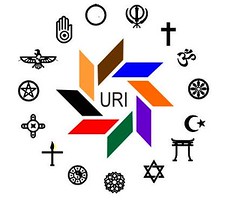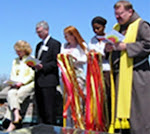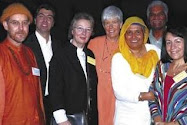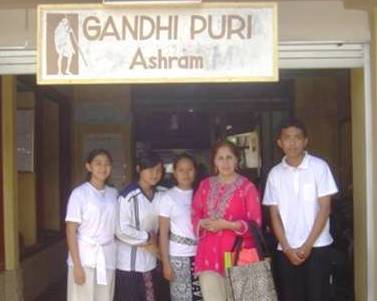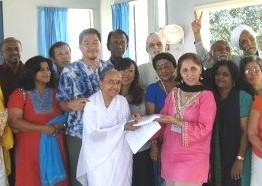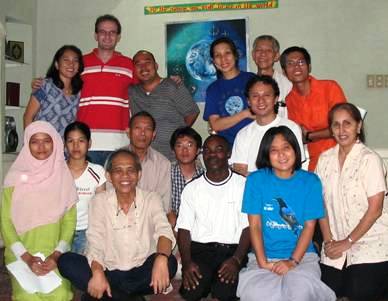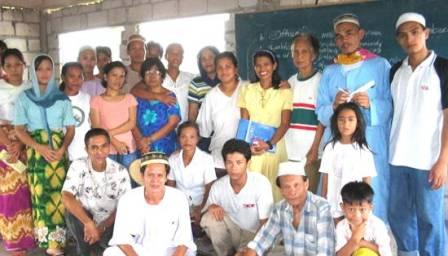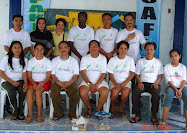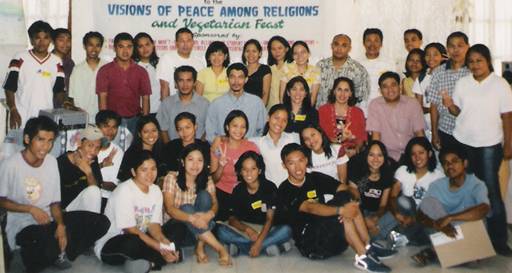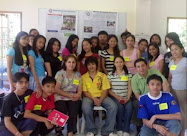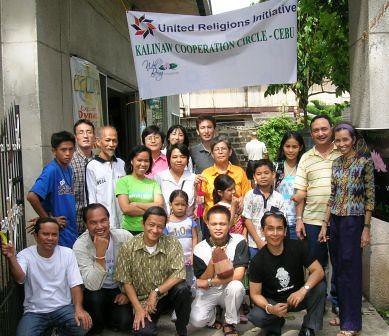 In this section we feature a reflection from Bro. Valentin Shukuru* a Catholic seminarian from Congo, Africa.
In this section we feature a reflection from Bro. Valentin Shukuru* a Catholic seminarian from Congo, Africa.In African traditions, the greatest misery, misfortune a man or a woman can experience is dying without children. This is the reason why barrenness or sterility is considered as a curse. There are 3 major events that mark life in African society namely, birth, marriage, and death. These 3 moments shape and animate the entire life of Africans, and to each due emphasize is reserved. As for Africans, in any culture on earth, the birth of a child is always an occasion for rejoicing precisely because it is believed that the newborn brings with him blessings and fortune for the entire community; he opens new horizons full of hope. This becomes meaningful specially when this child is associated with some supernatural powers or believed to have a divine origin or entrusted with a special mission for the rest human race and for their own welfare. In this line, Christians would celebrate at Christmas the birth of Jesus Christ, Muslims during Rabee Al-Awwal would remember the birthday of the Prophet Muhammad, and Hindus would celebrate Sri Krishna Janmashtami, etc.
In particular, the International Society for Krishna Consciousness (ISKCON)-- a spiritual expression of Hinduism-- celebrated the “birthday” of Lord Krishna last September 4th in Makati, Metro Manila. It was a celebration at which I was invited to participate as a member of The Peacemakers’ Circle. With my Catholic-Christian background I asked myself what sense could such a celebration have for me precisely because I know only a few things-- if not nothing-- about the Hindu religion. It is true that during my studies in philosophy I learned a bit about Hinduism but I did not go deep enough into further details as far as this faith tradition is concerned. Thus the invitation to join the Sri Krishna Janmashtami was truly providential for me.
I was positively impressed by the celebration through which people expressed their devotion to Krishna. If there is one thing worth mentioning that struck me it is their veneration and respect paid to Lord Krishna through chanting (“Hare Krishna”), lighting of candles, and offering of flower petals and money in front of the altar where the statue of the deity stood. I recalled to my mind what we Christians do at Christmas in front of the Crib.
Quite striking to me also was the bowing down of their "priests" and the reverence they showed by removing their footwear upon entering the “shrine” up until the end of the celebration. (I remember here the incident that happened to me that day when I first arrived at the Sri Madhava Center. Not knowing the tradition, I entered the place while still wearing my shoes until someone, kindly and politely asked me to take them off!). Going barefoot, was my first sacred experience as I was welcomed into the atmosphere of silence and peace, and the sacredness of the space.
One of the most meaningful highlights of the ceremony was the anointing of Krishna’s big statue with milk, honey, sugar, and yogurt; then its bathing by the “priests”. After sprinkling ourselves with blessed water, we were also invited to perform the same gesture of bathing the small Krishna statue. It was indeed a uniquely exciting experience for me! To top it all, the evening was concluded with a delightful gastronomic experience of vegetarian food which everyone happily savored and enjoyed.
This celebration gave me the opportunity to recall what Paul Valery, a French sociologist, once said: "Let us enrich each other from our cultural differences." Yes, I experienced the richness of our cultural and religious diversity at the Sri Madhava Center. Sad to say, however, it is the tendency of religious men and women of today's society to focus more on the differences in beliefs rather than the shared values. After all, life shows that it is not impossible to build a society of peace and harmony out of these differences.
Mahatma Gandhi once said: "Although what was narrated in the Gospels about Jesus was a fragment of the writer’s imagination, the sermon on the Mount would still be true for me [because the Gita, the Christian Bible, and the Holy Qur'an all teach the same, namely love of God as well as love of the neighbor and enemy]." Here lay for me all the meaning of Sri Krishna Janmashtami celebration as a Congolese proverb put it eloquently:
" What unites us (humans) is greater than what divides us."
Thank you for your invitation.
Valentin Shukuru B., SX
*Valentin is a seminarian from the Xaverian Missionaries. He has been in the Philippines for more than a year already and has been a regular participant of the Peacemakers’ Tuesday Inner Work Circle Send feedback and comments on this article to valbisschuk@yahoo.co.fr.
